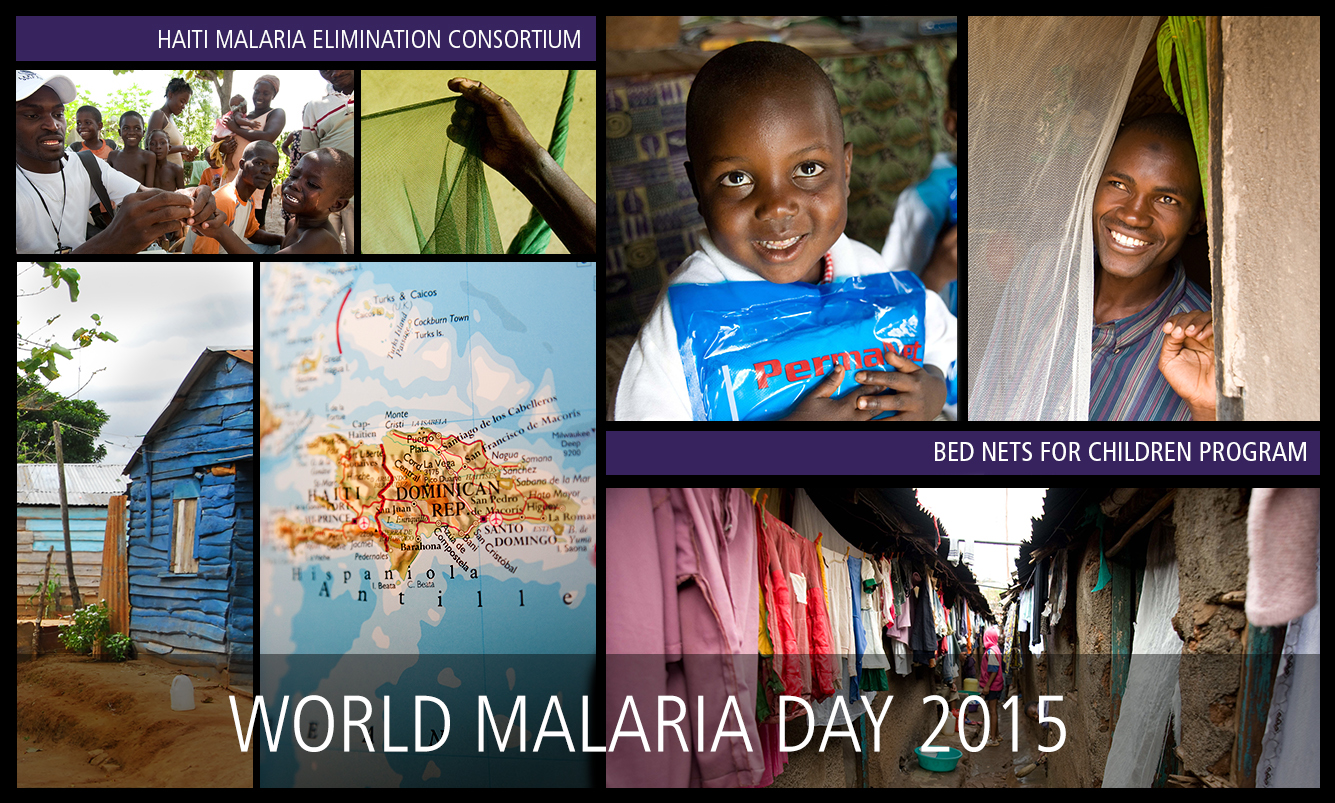You are here
World Malaria Day 2015: Invest in the Future, Defeat Malaria

On April 25, the world will observe World Malaria Day. Half of the global population—approximately 3.2 billion people—is at risk for contracting the disease, and 1.2 billion are at high risk. For those who are suffering from this mosquito-borne illness, every day is malaria day. Their day-to-day lives are hampered by debilitating fever, chills and flu-like symptoms. If left untreated, malaria can be fatal. In 2013, there were 584,000 worldwide deaths from malaria. However, through simple interventions such as rapid diagnostic testing and bed nets, malaria can be treated and prevented.
This year, the theme of World Malaria Day is “invest in the future, defeat malaria.” The CDC Foundation is dedicated to supporting the life-saving work of the U.S. Centers for Disease Control and Prevention (CDC) and its partners’ valuable contributions to malaria control around the globe. For World Malaria Day 2015, we’re focusing on two efforts that contribute significantly to malaria elimination and prevention.
The Haiti Malaria Elimination Consortium, supported through a $29.9 million dollar grant from the Bill and Melinda Gates Foundation, aims to eliminate indigenous cases of malaria in Haiti by the year 2020. While this generous grant will provide initial support, additional financial resources are needed now in order to reach the 2020 elimination target. You can make a gift today that will be an instrumental part of this historic, life-saving elimination effort.
“Elimination of malaria transmission in Haiti, coupled with eliminating the few remaining cases in the Dominican Republic, will create a malaria-free zone across the Caribbean,” said Larry Slutsker, M.D., M.P.H., director of CDC’s Division of Parasitic Diseases and Malaria at the HaMEC introduction earlier this year. “This will be an historic public health milestone for the Western Hemisphere, and will greatly reduce the risk of reintroduction of malaria to nearby countries where it’s already been eliminated.”
Additionally, the CDC Foundation is proud to highlight the Bed Nets for Children program, which provides insecticide-treated bed nets to CDC-affiliated programs. In 2014, CDC Foundation raised enough funds to purchase and distribute 6,500 bed nets. A bed net is a net that hangs above a sleeping space, usually a bed or mat, and provides a physical barrier between the malaria-carrying mosquito and the person at risk of getting the disease.
CDC has been working in western Kenya since 1979 and has long-established networks and partners in the region. With funding from the Foundation's Bed Nets for Children program, the team now hand-delivers insecticide-treated bed nets to children and pregnant women, ensuring that bed nets are delivered directly to those most at risk for malaria. Your gift of a long-lasting insecticide-treated bed net costs an average of $5 and protects up to three children.
These life-saving interventions and the advancement of CDC’s work would not be possible without the support of our donors and partners. We’re grateful for their dedication and commitment to a malaria-free world. You can learn more about CDC’s malaria work, the Haiti Malaria Elimination Consortium and the Bed Nets for Children program. For the millions of people struggling with malaria today, your support is a valuable investment in a healthy future.
Bed net program photos © David Snyder/CDC Foundation.